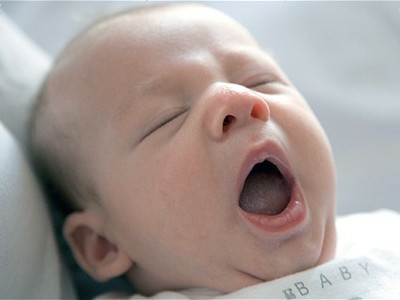It turned out to become a 'liar' as you lie

by Lindsey Martin
People who lie lie do not want to tell a lie, but only when facing a scene that only has to lie, there should be many patterns that lie unavoidably thinking that "this time is useless". However, it turned out that "People become liars as they lie.
Why liars lie: What science tells us about deception - The Washington Post
https://www.washingtonpost.com/news/speaking-of-science/wp/2018/08/24/why-liars-lie-what-science-tells-us-about-false-statements/
It is by no means funny that a person tells a lie, and early children will tell a lie from about two years old . When a young child tells a lie, the parents of the child may be worried that "It is not possible to lie so early that you will grow up as a bad child." However, there are psychologists who say that "Lying a child is considered a milestone necessary for growth" because planning, influence, other people's circumstances need to be judged in order to lie.
As most children acquire moral ideas and ability to rule themselves as they grow up, the frequency of lying will gradually decrease as they learn that "it must not be a lie". In the 2010 study (PDF) of 1,000 adults living in the United States, about 60% of adults never lied within 24 hours and only half of the lies reported during the study were It was from 5% of adults. Most of the lying adults did not lie only when they thought that "telling the truth would cause trouble" and lying for their own benefit.

by MJ Ambriola
Mr. Joshua Green , a cognitive neurologist at Harvard University , tries to tell the subjects to lie by mapping the blood flowing to the subject's brain with MRI and saying "If you lie you get monetary rewards" We conducted experiments.
Some of the subjects did not lie even if monetary compensation was offered and instantly said the truth, but of course some people told a lie. In the brains of lying subjects, it is said that a part of the frontal lobe temporarily carrying out difficult problems and complex thinking was activated, and it was hesitated whether to tell the truth or lie, but as a result I lied.
Following the follow-up survey, Mr. Green found out that a lied person belongs to a liar group in order to obtain monetary compensation. According to Mr. Green, it is related to whether or not lying is able to suppress his / her desire, and a liar person may have a low ability to resist his / her desire.

by David Goehring
Some scientists say "People fight in the brain about the reward obtained by lying with their own inherent norms, or the damage they receive by not lying, and as a result do not lie Some people think that they will decide. Mr. Dan Arielly , professor of psychology at Duke University , says, "We are judges that we themselves decide whether to make themselves honest or harassing," and whether the intrinsic norm is lying I think that I will decide.
Also, external factors are related to when and how often we lie. What people are liable to lie is "when you can streamline a lie", "when you feel stressed" "when a person is also a liar", "when you taught moral morality" "other people It seems to be hard to tell a lie when I feel that it is being seen in.

by Brynn Tweeddale
Mr. Ariely's research in 2016 investigated how "lying" affects the brains of people. The research team discovered that amygdala activities related to emotions such as fear and anxiety become active when people talk lies of words. In other words, when people tell a lie, they have had negative feelings such as guilt.
However, when the same subjects were asked to play a game saying "lying to a partner and earn more money", the reaction of the amygdala when the subjects told a lie has gradually become dull. Also, subjects who did not suffer any adverse effects on lying came to lie more lies.
Mr. Arielly says, "The fear of lying is that it changes the behavior of the person himself as it lies," and said that liars tend to lie more. Even if it is a small lie at first, as the feeling of guilt for getting used to gradually lying becomes faded and the feeling of guilt fades, the possibility that it will soon become a big lie without feeling guilty There is.

Related Posts:
in Note, Posted by log1h_ik







